Pensions: Women get 35% less than men due to care responsibilities
- Published
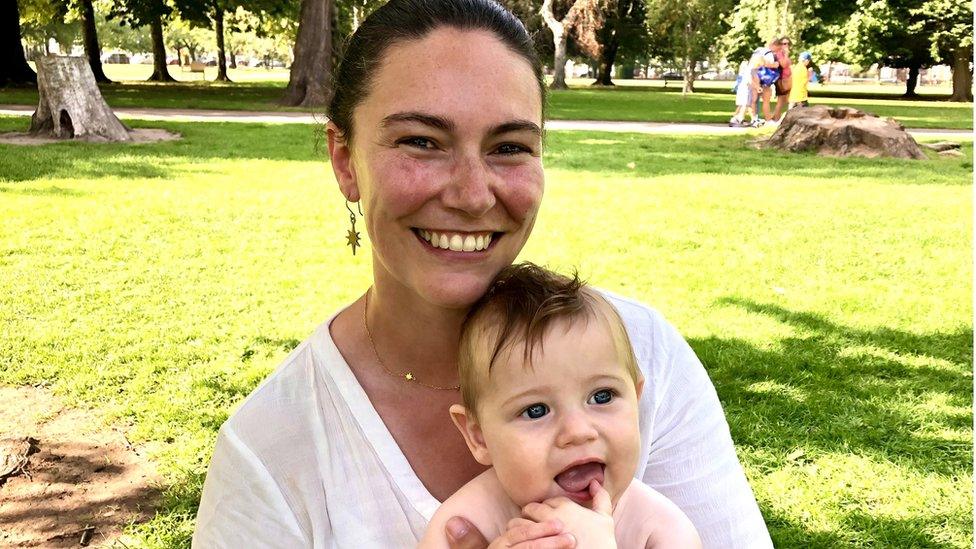
Rowan Davies said she is planning on returning to work in six months to mitigate how much she loses from her pension
Women's private pension funds are 35% lower than men's, according to the UK government's official estimates.
Private pensions consist of workplace schemes or personal pensions set up by individuals using independent companies.
Taking time off or going part-time means paying less into pensions during your working life.
A charity said employers should do more to support women with caring responsibilities.
Rowan Davies, 34, from Cardiff, is currently on maternity leave while caring for her five-month-old son Mabon.
She said she was "very aware" of the pensions issue, and so she is planning to return to work in six months.
"Finances and the household income is a big factor in many conversations me and my husband have about now and the future," she said.
Mrs Davies said her own mother was able to retire early, "so she's always driven home the importance of having an occupational pension".
"There's lots of information out there", she added. "But I feel like a lot of it is information you've got to go and find, as opposed to being presented to you at a good time."
Gretchen Betts, managing director of Magenta Financial Planning, said it was often a big life event that made people think about how they were going afford life in retirement.
"Especially in the case of divorce or bereavement where maybe, stereotypically, the man has taken the lead in financial decisions, it really highlights a gap around literacy for a lot of women," she said.
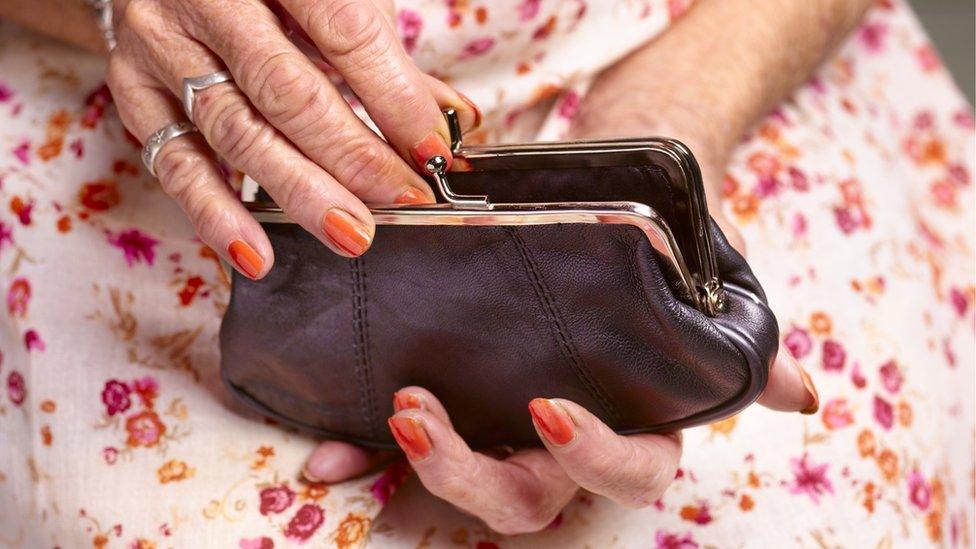
A pension is a way of building up savings to live from in retirement
Ms Betts said the earlier people think about saving for the future the better, but it was "never too late".
She said a good rule of thumb was trying to save 10% of income for retirement, but noted it was not always possible.
Judith Jeeves, 63, said it was the loss of her family that made her think about how to fund early retirement.
"My brother died at 56 and my mum and husband died within two years," said Mrs Jeeves, from Shwt, Bridgend county.
"It started before Covid came in, but Covid consolidated it and I thought you know what, there's more to life than work.
"That might sound a bit privileged of me but I want to be able to do things while I'm fit and healthy."
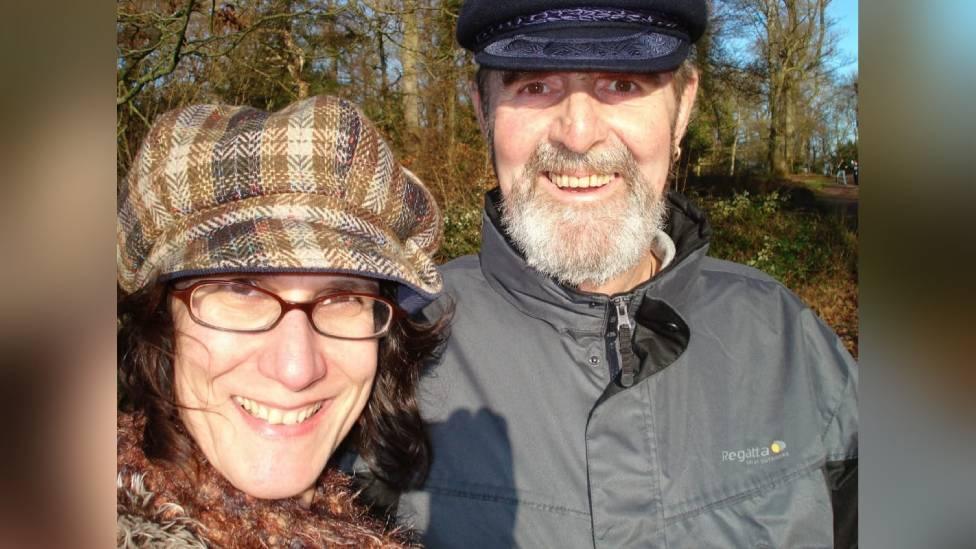
Judith Jeeves said once her husband Mervyn died she realised she had to take over financial matters
Mrs Jeeves said her husband Mervyn had taken the lead on financial matters during their marriage.
"So once my husband died I thought 'well I'm on my own now, I've got to sort all this out' and it was very overwhelming for me."
The equality charity Chwarae Teg said employers could "support women by having really flexible working practices".
"They can have better shared paternity leave as well, carer's leave, and a culture that's really supportive of women and the issues that they have," said the charity's Bethan Airey.
While the private pensions gender gap remains extremely wide, the gap between men and women in the state pension has narrowed substantially and is forecast to equalise in the early 2040s.
But a recent report by pensions consultants Lane Clark and Peacock forecasts the inequality in private pensions will narrow only slightly in the next two decades, external.
The UK government said the introduction of automatic enrolment into workplace pensions, which means employees join occupational pension schemes unless they choose to opt out, "has transformed the UK pensions landscape and brought millions of women into pension saving for the very first time".
It added: "We recently published the first official measure of the Gender Pensions Gap, external, which will help track the collective efforts of government, industry and employers to close it, and ensure women can look forward to the retirements they've worked so hard for."

ONE MAN AND HIS ISLAND: What's life like for Flat Holm Island’s newest warden?
YR WYDDFA: Life on Britain's busiest mountain

Related topics
- Published12 September 2023
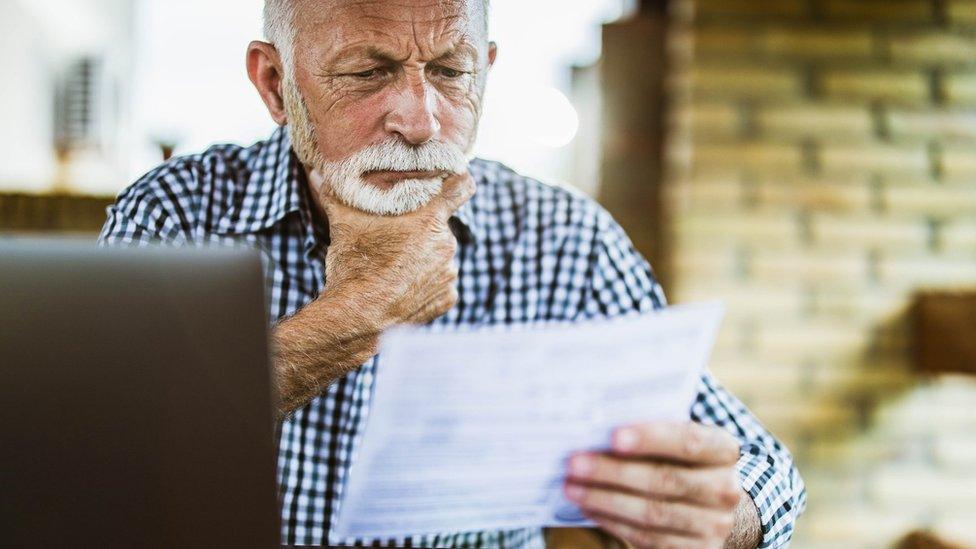
- Published16 May 2023
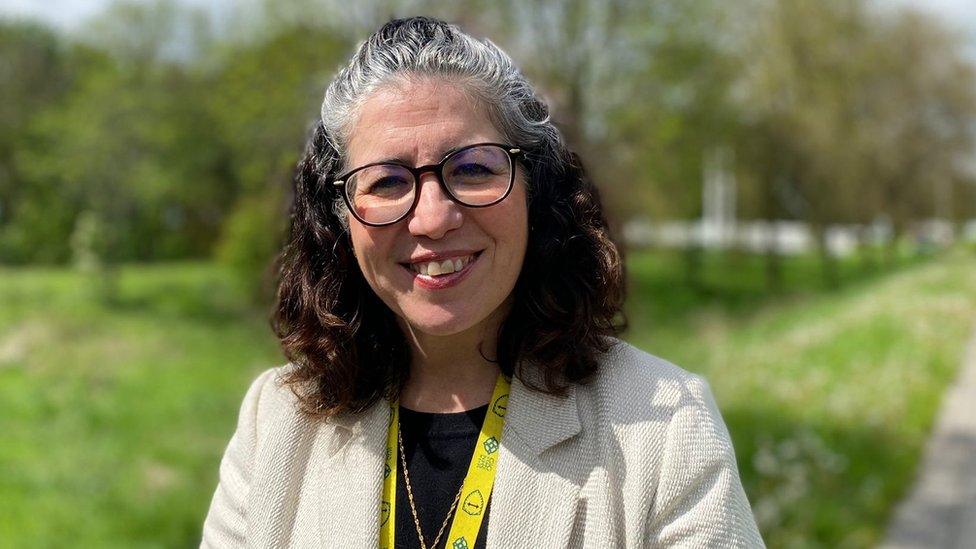
- Published6 February 2023

